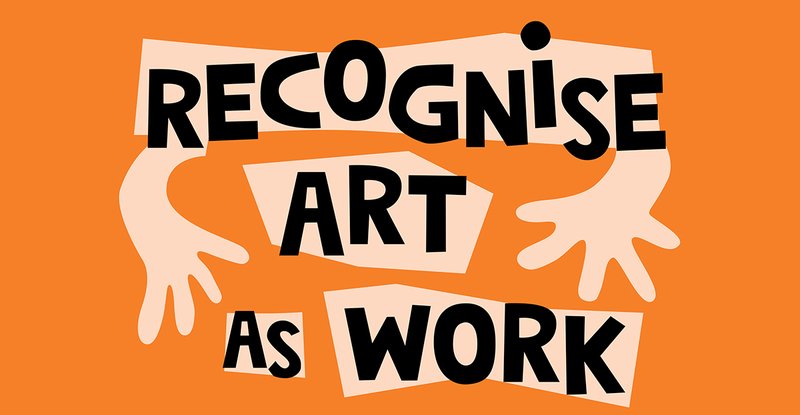Modern Awards Review: Discussion paper open for consultation
The Modern Awards Review 2023-2024 represents a pivotal opportunity for the visual arts to secure pay and improved working conditions.
The Modern Awards Review 2023-2024 represents a pivotal opportunity for the visual arts to secure pay and improved working conditions.

In a significant move to recognise art as work, the Australian Government made a commitment in National Cultural Policy—Revive to establish minimum standards and award coverage as part of the Modern Awards Review 2023-2024. Announced on 15 September 2023, the Modern Awards Review is set to investigate potential gaps in coverage within the arts and cultural sector.
A discussion paper was issued by the Fair Work Commission on 6 November 2023, inviting submissions in response by 4 December 2023. Consultations with various stakeholders are scheduled to be held between 11-12 December 2023, and 22 January-2 February 2024.
This development follows twenty years of advocacy by the National Association for the Visual Arts (NAVA) to mandate minimum pay and working conditions for the visual arts, craft and design sector. This moment is a unique opportunity for the visual arts community to secure crucial workplace rights and entitlements.
The discussion paper highlights limitations in the existing award coverage across the arts and culture sector. Among the key questions raised are how a new award should define its coverage and whether it should encompass employers, employees, or both. The discussion paper aims to gather input and perspectives on this.
NAVA is hosting a series of sector consultation meetings this month to collaborate and share insights and ideas for extending award coverage for the arts sector. Meeting notes from each session will be shared after the workshops to help you develop your submission to the consultation.
The discussion paper delves into the potential gaps in award coverage and raises questions about whether certain occupations and industrial contexts are currently not covered by modern awards, leaving workers without proper protections.
It then goes into the legislative framework that empowers the Fair Work Commission to create or amend modern awards. It discusses the criteria and considerations relevant to the Commission when exercising these powers. It seeks to understand which pre-reform awards covered occupations that are not currently included in modern awards.
Modern award coverage is currently limited to employees. This means that a significant portion of workers in the visual arts, craft and design sector who are often engaged as independent contractors or sole traders, may not be adequately covered. Unless artists are put on the payroll instead of short-term contracts, such as the HOTA ArtKeeper program for example. Revive emphasises the need to improve conditions for all workers in the arts, regardless of their employment status. It acknowledges that many practitioners are engaged as contractors and describes artists as the original gig workers:
Patterns of work across the cultural and creative sector vary, with a large number of creative practitioners undertaking short-term contracts as employees or independent contractors, or performing ad hoc and seasonal work – artists are the original gig workers. These intermittent and insecure working arrangements often result in a lack of access to minimum employment standards, forcing many creatives to hold multiple jobs merely to make ends meet. This, in turn, can discourage the pursuit of a long-term career in the sector. Revive, p. 53.
The discussion paper also highlights proposed amendments to the Fair Work Act, particularly those that could impact workers in the arts and culture sector. The Fair Work Legislation Amendment (Closing Loopholes) Bill 2023, introduced into Parliament on 4 August 2023, includes a new clause (s 15AA) that outlines principles for determining the distinction between employees and independent contractors. Instead of solely relying on written contracts, this provision considers the practical reality and totality of the working relationship between parties.
Additionally, the Bill empowers the Fair Work Commission to set minimum standards for "employee-like" workers who may not be covered by modern awards. This provision allows the Commission to determine terms and conditions for this category of workers, which could impact the visual arts.
While modern awards cannot currently apply to independent artists, the proposed changes provide the Commission with the ability to decide what terms and conditions will be set as minimum standards. If there are artists and arts workers who fall within the proposed definition, this may be of relevance for discussion by the sector for the purposes of the Review.
The Modern Awards Review 2023-2024 represents a pivotal opportunity for the visual arts to secure improved workplace rights and entitlements. By addressing existing limitations and potential gaps in award coverage and considering the impact of legislative amendments, we can aspire to more equitable and sustainable working conditions.
Image: Nadia Hernández, 2023.
[ID: Graphic image with black block text on pastel orange shapes on a bright orange background. The text reads, 'Recognise Art as Work'.]